Designing change: Nabila’s mission to disrupt the narrative
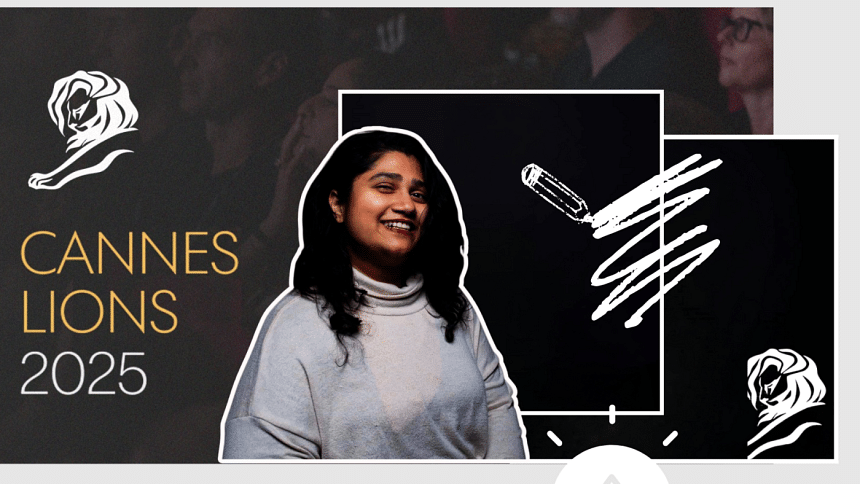
When we think of entertainment, our minds often jump to the stage, the screen or the sound of applause. But creativity stretches far beyond performance. Visual communication, graphic design and advertising shape how we see, feel and engage with culture every day. They entertain, they influence, and more importantly, they spark change. And that is where women like Nabila Basher step in.
From drawing the perfect whale at age of five to becoming the first Bangladeshi woman in advertising to attend the prestigious Cannes Lions, Nabila's journey has been defined by grit and determination.
The elder daughter of actors and theatre activists Masum Basher and Mili Basher, Nabila explored music, dance and painting as a child. But her mother encouraged both her daughters to focus on one form after exploring them all. While her sister stuck to dance, Nabila was drawn to the emotions captured by pencils and charcoal.
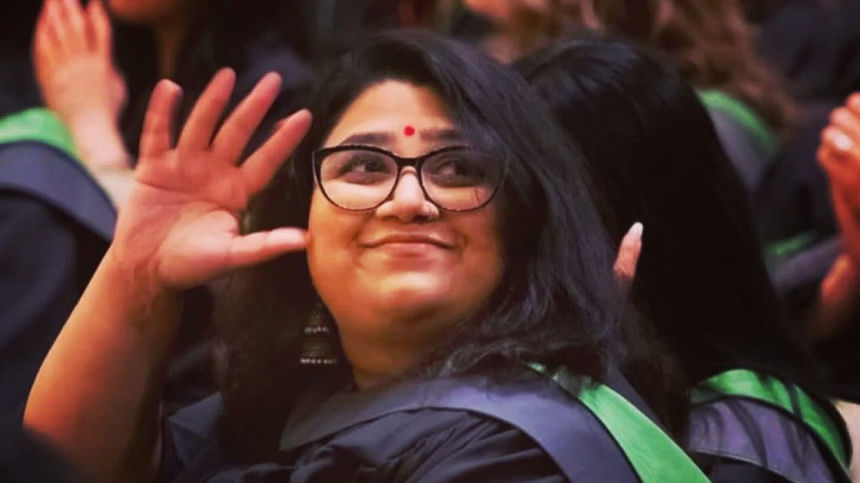
"As a teenager, I thought I had to pursue a grown-up job. I didn't even know visual communication existed as a career," she told The Daily Star. "Ironically, I dreamt of becoming a mathematician because problem-solving came naturally to me. But creativity is problem-solving too."
After moving to Bangladesh from Saudi Arabia, Nabila struggled to catch up with her studies. "My friends were already looking into universities, and I was scrambling for direction. That's when I stumbled onto visual communication and instantly knew this was it."
Nabila always wanted to make an impact. "I knew I couldn't save lives or invent great things, but I could make a difference through visual communication. It was my way to channel creativity and problem-solving into social change." She prepared for university with a drawing course under Fareha Zeba, "one of the most inspiring women in Bangladesh," as Nabila describes her.
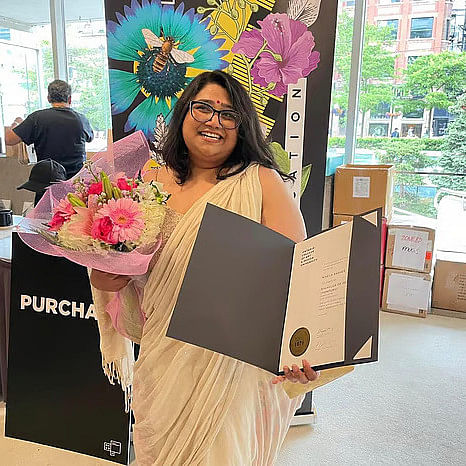
With her family's support, she applied to Nuova Accademia di Belle Arti in Milan and the Malaysian Institute of Art in Kuala Lumpur. Despite a scholarship to Italy, she chose Malaysia to stay closer to home. But life in Kuala Lumpur was harder than expected.
"My time there didn't influence me much creatively, other than learning Adobe Creative Suite and seeing upfront racism. It taught me how not to treat people. My photography lecturer, Mr Lee, was the only teacher who saw past my nationality and believed in me."
In 2008, Nabila returned to Bangladesh and joined Mattra agency as a graphic designer. Her career rapidly progressed to visualiser, creative supervisor and associate creative director, but it came with constant hurdles. "Grey Dhaka changed my outlook. Nurur Rahman Bacchu and Wasi Ahmed taught me about insight and strategy, which built my foundation for effective ideas."
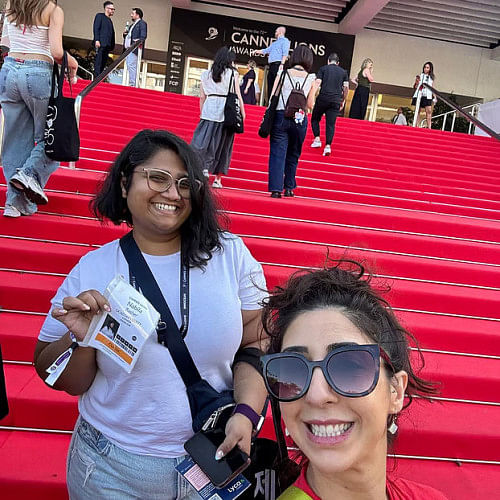
A turning point came with the Prothom Alo Borno Mela project, which Nabila led alongside Creative Director Javed Akter Suman. "Seeing that activation come to life was a huge feat for me." More milestones followed, including the 2012 Srijan Samman Art Director of the Year Award, recognising excellence in Bangla advertising.
But Nabila's biggest challenge was being a woman, "and a plus-sized one at that." She revealed being paid less than her male colleagues with identical qualifications, even after winning awards. "The only difference between us was gender. On top of that, I faced constant bullying for being heavy."
Every agency meant starting over and proving herself. "I climbed the career ladder fast, but the struggle never stopped. I even quit one agency because of the toxic masculinity, which existed despite having women in leadership."
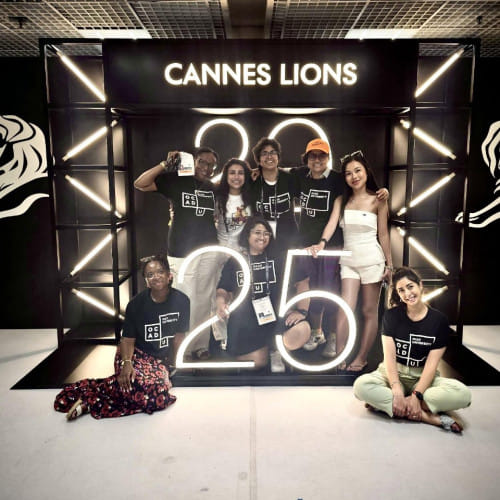
Marriage and motherhood entered her life, but the struggle to the top continued. "After constant discrimination and body shaming, I started hating the industry. I felt hollow and depressed, like I had made no real impact."
In 2019, Nabila made the difficult decision to leave Bangladesh to expand her creative potential and secure her daughter's future. She pursued a second Bachelor's degree in Advertising at Ontario College of Art and Design University (OCAD-U) in Canada.
While studying, she worked two jobs at Freedom Mobile and as a freelance designer for Lenovo. Her family in Dhaka cared for her young daughter until they reunited in Canada after Nabila graduated in 2023. "Toronto changed everything. At OCAD-U, I learned about decolonisation, which deeply resonated with me. I finally found renewed purpose."
She also found mentors like Angela Bains, Dani Gaede and Trent Thompson.
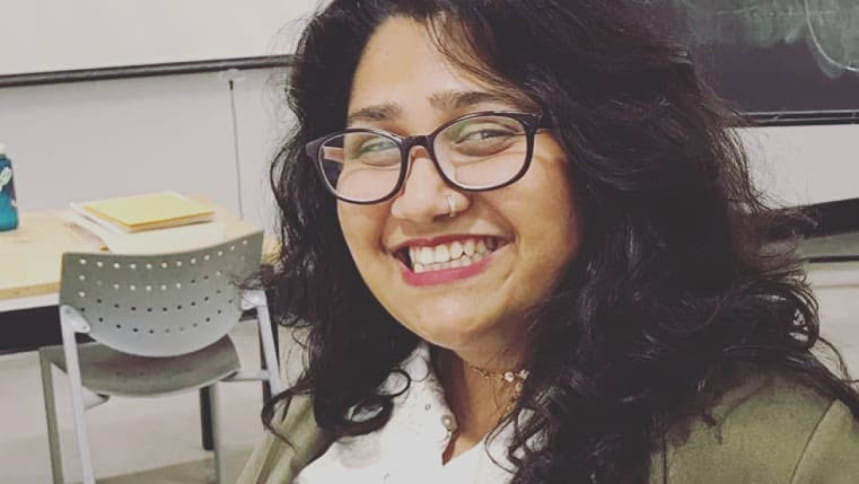
"Despite different backgrounds, we [my programme chair Angela] shared the same struggles as women of colour. That opened my eyes to how hard it is to break through in this industry."
Her fight paid off when she won a Graphite Pencil at the D&AD New Blood Awards in her final semester. These awards are globally recognised for creative excellence. Her winning project, Candy Crush Unwrapped, allowed users to create music playlists while playing the game, merging Gen-Z's love for music with gameplay.
Breaking into Canada's competitive advertising market was tough, but she persevered, landing a designer role at DEPT agency.

"With the projects I work on now, I can have open conversations without needing to impress anyone. Back in Dhaka, I learned how to meet business goals while battling stereotypes, but here, I can speak my mind more freely."
Diagnosed with ADHD and ADD, Nabila has learned to work with her challenges. "I can't sit still to come up with ideas. I need to move, interact and find inspiration in everyday life and people's stories."
This year, Nabila became the first Bangladeshi woman in advertising to attend Cannes Lions.
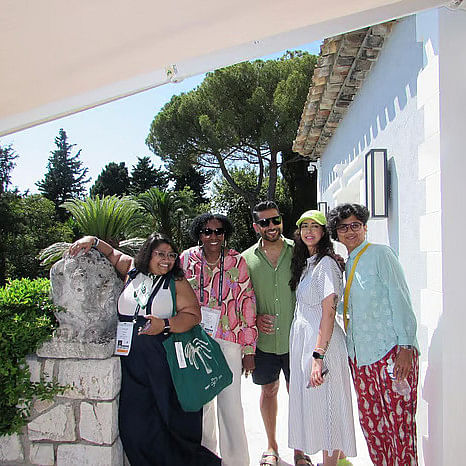
About her experience there as an ERA (Ethnicity, representation and accessibility) delegate, "It was a sensory overload, seeing the future of creativity unfold. I was inspired, determined to stand shoulder to shoulder with the world's greatest."
She was also invited to speak at the MORE GRLS masterclass at the Palais, sharing her experience as a woman in advertising. "It blew my mind that I was the first Bangladeshi woman there. Bangladesh has been participating for 11 years. That shows how few women there are in this industry …The challenges women face are global. But I am not alone in this fight. I hope my work inspires more Bangladeshi women to tell their stories and demand their space."
Back in 2012, Nabila told The Daily Star, "One day, I hope to go to Cannes." Today, she stands as proof that dreams, grit and art can rewrite the rules.

 For all latest news, follow The Daily Star's Google News channel.
For all latest news, follow The Daily Star's Google News channel. 





Comments